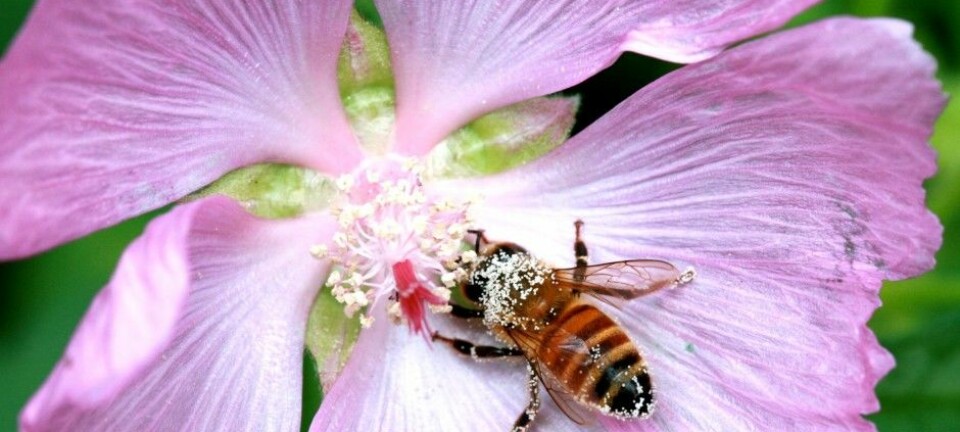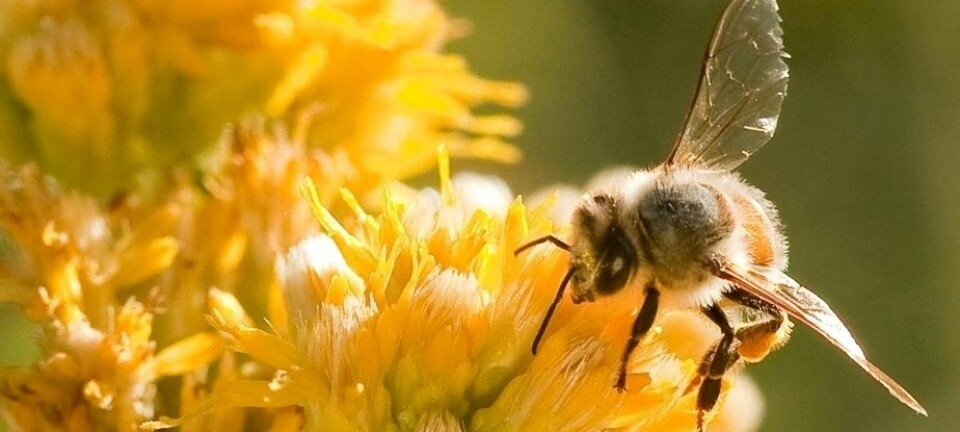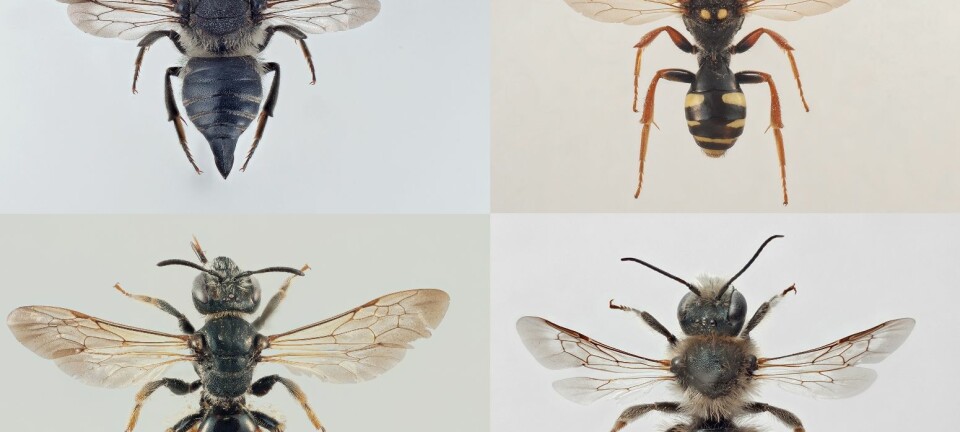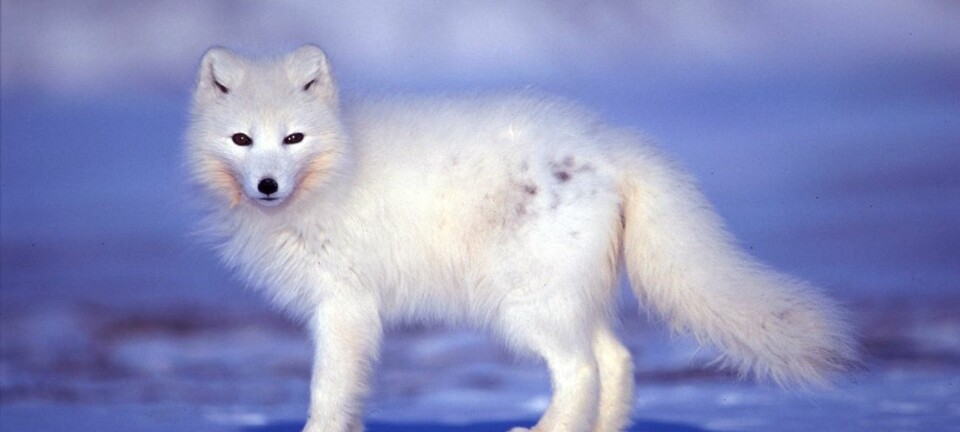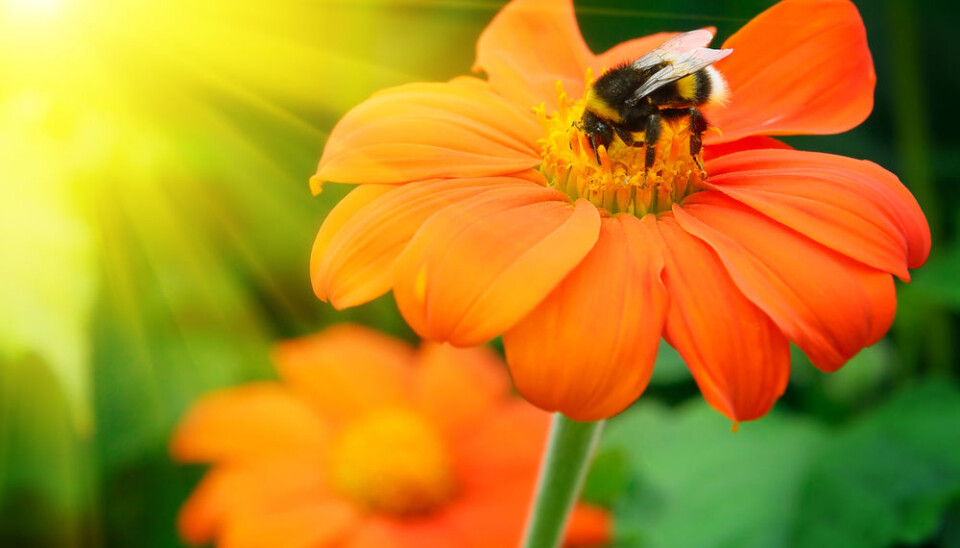
Conserving rare bees has ethical merit but little economic value
Most wild bee species do not pollinate crops and offer little economic return; scientists suggest other reasons to conserve them
As Norway announces the world’s first 'bee highway' to promote the conservation of rare bee species, a new scientific study reports that rare species of wild bees are not the dominant crop pollinators and offer little economic return for farmers and the food production industry.
In a new study, scientists show that 80% of crop pollination across 5 continents is carried out by just 2% of all wild bee species in the areas they studied.
These represent only the most common species of wild bees, and contribute the vast majority of economic returns in agricultural systems – around 3,000 USD per hectare, which is about the same as that from farmed honeybees, the new research shows. It was published recently in Nature Communications.
But whilst all other wild bees do not pollinate crops and offer little economic return to farmers, scientists behind the study argue that there are other important reasons for conserving these rarer species.
Farmland conservation measures will not preserve rare species
Henrick Smith, professor from the Centre of Environmental and Climate Research at Lund University, Sweden, was involved with the research – part of a large EU funded research project ‘Liberation’, studying the biodiversity of farmlands and the economic services, like pollination, provided by wildlife.
“We gathered a lot of different data sets together to look at the economic contribution of wild bees to crop pollination and then tried to determine the relative importance of the more common species and rarer species”, says Smith.
The team of researchers gathered information from 90 studies that identified bee species in a total of 1,394 crop fields, spanning North and South America, Europe, South Africa, Australasia, and central Asia.
According to Smith, their research provides evidence that the standard measures used to conserve the most common pollinating species is insufficient to preserve the other 700 plus species of rare bees. But they are important for other ecological and ethical reasons.
“We see that a few species of common crop pollinators are surviving quite well in agricultural areas, and also that they benefit from the conservation methods that may be used in these managed farm landscapes,” he says.
“But there is a whole array, over 700, rarer species which don’t easily survive in contemporary agricultural landscapes. Most countries have signed the Convention of Biological Diversity, so we need to conserve bees as best we can with a focus on measures that are specifically targeted to these rare species,” says Smith.
For him, the important conclusion of the research is that conservation of rare bee species can be justified based on scientific and ethical reasons, and not for economic purposes, as is often cited.
Common species could become rare in the future
According to Smith, the fact that many countries often rely on one or two species to pollinate crops makes us vulnerable if these same species were threatened in the future.
“What we don’t know of course is that under different circumstances, say in a changed climate, some of the now rare species might become important and vice versa,” says Smith.
“This is hard to predict, but we do know that some bees species, like the great yellow bumble bee in Sweden, were once important crop pollinators but are very rare today. So we cannot know how the economic importance of all these bee species may change in the future,” he says.
Another scientific reason for bee conservation is the mutually beneficial relationship between rare wild bees and the rare wild flowers they pollinate. A large decline in wild bees in general could have unknown impacts on the overall health and biodiversity of these wild flower habitats, according to Smith.
“The ecological consequence of that is very hard to know today,” says Smith. “So we need targeted conservation methods for all these rare species. They will not be preserved simply because we put up flower strips in agricultural landscapes. We need to do more than that,” he says.
Previous studies look at managed bees
This is not the first time that scientists have identified which bee species are responsible for pollinating crops.
Dr Madeleine Chagnon is an associate professor in the Department of Biological Sciences at the Université du Québec à Montréal and has been studying bees for many years. She was not involved in the study, but thinks it is an important piece of research.
“This study of bee populations confirms a well-known fact – that in general, only a very small percentage of species play a dominant role in ecological communities,” says Chagnon.
“What is important about this research however is that this is now confirmed for wild bees in agricultural settings. Also, they have data for rare bee species, which are usually absent from research looking at large crop systems,” she says.
Smith echoes this, and adds that the sheer amount of data gathered together for this study is rare in this field of research.
Can Science comment on the ethics of conservation?
Chagnon is impressed that the research highlights not only the bare facts of economic returns from certain species, but that the scientists emphasise the many other reasons for conserving rare species of wild bees, and not simply because they have an economic importance.
“Analysis of scientific data very rarely leads to conclusions along the lines of what we have here -- the importance of moral vs. economic arguments for preserving biodiversity of ecosystems,” she says.
“The authors take a stand as scientists insisting ‘ecologists and conservationists need to make these distinctions clear if we expect policy makers or land owners to defend species with no clearly defined economic value to humans’,” She says, quoting from the scientific article.
Smith agrees.
“The message here is that we need to think both about the ecosystem service pollinators that provide economic returns, and separately about the conservation of rare species. We need to find an array of different measures so that we can protect both at the same time,” he says.
